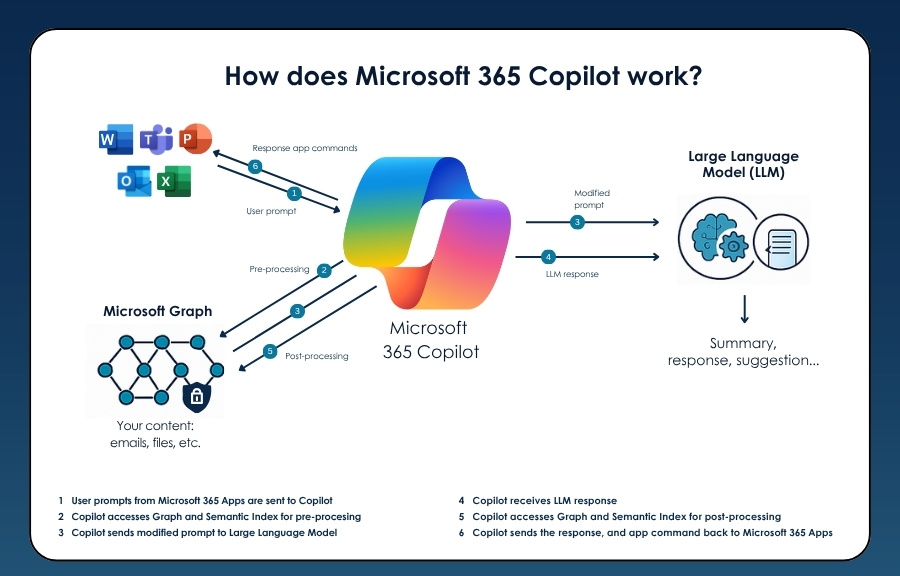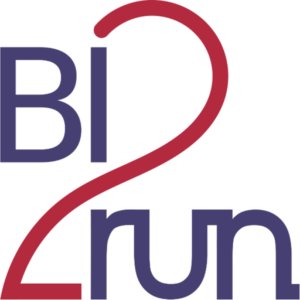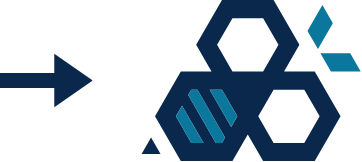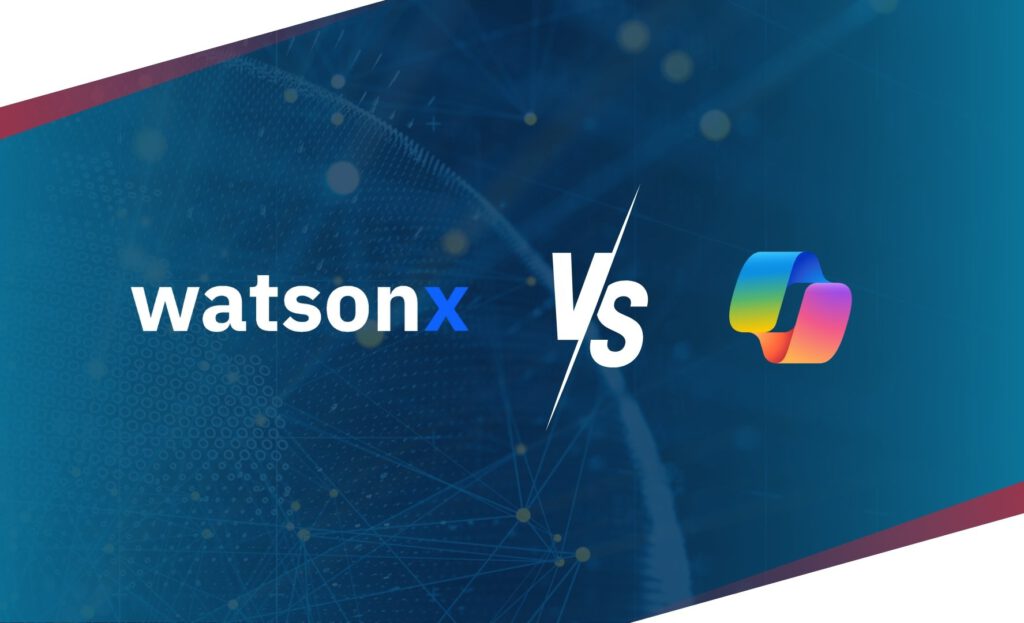Artificial intelligence has long been part of everyday business, whether for automating routine tasks, supporting decision-making, or improving customer service. IT decision-makers are increasingly encountering two platforms that are particularly interesting for companies: IBM watsonx and Microsoft Copilot.
Both solutions take different approaches, and that is precisely what makes them so exciting. In this article, we highlight their respective strengths and limitations, the scenarios for which they are particularly suitable, and how they can even be used together to create maximum added value for your company.
IBM watsonx: The modular AI platform for businesses
watsonx is IBM‘s scalable platform for the use of generative AI, data analysis, and automation—designed for complex, business-critical applications in enterprises. The platform consists of several specialized components:
- watsonx.ai – Development, customization, and operation of foundation models (including IBM Granite)
- watsonx.data – Access, management, and preparation of data for AI
- watsonx.governance – Transparency, auditability, and control over AI models
- watsonx Orchestrate – Creation and operation of AI agents for processes and automation
watsonx is therefore not a single product, but a holistic AI ecosystem that combines openness, control, and enterprise-wide integration.
watsonx Orchestrate: AI agents & automation from a single source
Within this platform, watsonx Orchestrate enables the development of AI-powered assistants that automate business processes—with domain-specific expertise, prebuilt skills, and rule-based workflows.
Orchestrate is particularly strong in areas such as HR, procurement, sales, and customer service. Key features:
- 1,200+ ready-to-use skills & templates for rapid implementation
- Low-code environment for specialist departments – no development team required
- Native integration into tools such as Microsoft 365, Salesforce, SAP, Workday
- Granite Foundation Models for enterprise-secure Gen-AI usage
- Governance & ruleset for reliable, controllable agent logic
watsonx Orchestrate takes AI-based automation to a new level—directly in everyday work, across departmental boundaries.
What is Microsoft Copilot?
Microsoft Copilot is an AI solution that is deeply integrated into the Microsoft productivity stack – particularly Office 365, Teams, and Dynamics 365. The idea is that AI should provide assistance directly where employees work on a daily basis.
The offering is complemented by Copilot Studio, which allows users to build their own assistants – albeit primarily based on Azure technology and with strong ties to the Microsoft ecosystem.
Copilot is particularly strong in:
- Documentation, text generation, and summaries
- Email management and calendar support
- Integration with Microsoft applications (Word, Excel, Teams, etc.)
- Easy to use for end users

watsonx Orchestrate vs. Microsoft Copilot – a comparison
| criterion | watsonx Orchestrate | Microsoft Copilot |
| platform architecture | Part of the watsonx platform with its own agent and automation framework | Part of Microsoft 365/Power Platform |
| AI models | IBM Granite + open source models + BYOM | GPT-4 (OpenAI via Azure) |
| automation | Integrated (workflows, decisions, skills) | External (via Power Automate, separately licensed) |
| target audience | Business and IT teams, domain experts | End users |
| Governance & Security | Complete AI governance including model cards and auditability | Partially – limited according to Gartner |
| Integration & Openness | Multi-cloud, open to third-party providers, API-centric | Focus on Microsoft Stack |
| RAG (Retrieval- Augmented) | Preconfigured with semantic search via watsonx Discovery | Only web crawling OOTB, limited semantic search |
| pricing model | No additional costs for Gen-AI usage | Billing per Gen-AI response (e.g., 2 messages per response) |
Strong together: strategically combining watsonx Orchestrate + Microsoft Copilot
Many companies already rely on Microsoft 365 – whether for communication, documentation, or collaboration. watsonx Orchestrate perfectly complements this environment by intelligently automating processes, preparing decisions, and controlling cross-system workflows.
The interaction between the two results in powerful scenarios:
Example 1: Intelligent purchasing and approval management
Imagine the following scenario:
- A department employee creates a demand notification in Teams.
- Microsoft Copilot helps you formulate the message, automatically attaches relevant offer documents, and creates an initial summary based on previous cases.
- watsonx Orchestrate picks up the process in the background:
- Automatically checks budget approvals via SAP
- Evaluates supplier risks based on external data
- Initiates a multi-stage approval process
- In Outlook, budget managers receive an automated decision template with evaluations, suggestions, and options for action – generated directly by watsonx.
- The final ordering process is triggered automatically, including communication to suppliers via email or API connection.
Result: Fewer queries, faster completion, informed decisions – within the familiar Microsoft interfaces.
Further possible applications in Microsoft environments:
- In Microsoft Teams: Orchestrate initiates approvals, sends status updates, creates tasks in “To Do” – all AI-driven.
- In Outlook: Orchestrate classifies incoming emails, suggests responses (e.g., create a meeting, create a ticket) and automates standard processes.
- In Power BI: Orchestrate analyzes trends and recommends specific measures – e.g., automatic escalation in case of target deviation.
- In SharePoint & OneDrive: Orchestrate semantically searches documents, extracts relevant content, and feeds it into workflows.
- In Dynamics 365: Orchestrate supplements Copilot with process-oriented skills, e.g., automatic quote calculation or escalation logic in customer service.
Conclusion: AI strategy means platform strategy
Microsoft Copilot undoubtedly offers enormous advantages for productivity-related applications in the Microsoft ecosystem. But anyone who wants to use AI strategically, scalably, and securely in their company needs more than just an Office assistant.
watsonx is not just a tool. It is the platform that enables companies to bring AI under control and translate it into value in a targeted manner.
Whether training and controlling your own foundation models (watsonx.ai), providing data (watsonx.data), ensuring compliant operationalization (watsonx.governance), or practical implementation through AI agents (watsonx Orchestrate), watsonx provides the building blocks for a future-proof AI infrastructure.
It’s not a question of either/or between Copilot and watsonx – it’s about using AI where it has the greatest impact. And that’s exactly why watsonx provides the openness, governance, and business flexibility that modern IT strategies need today.








